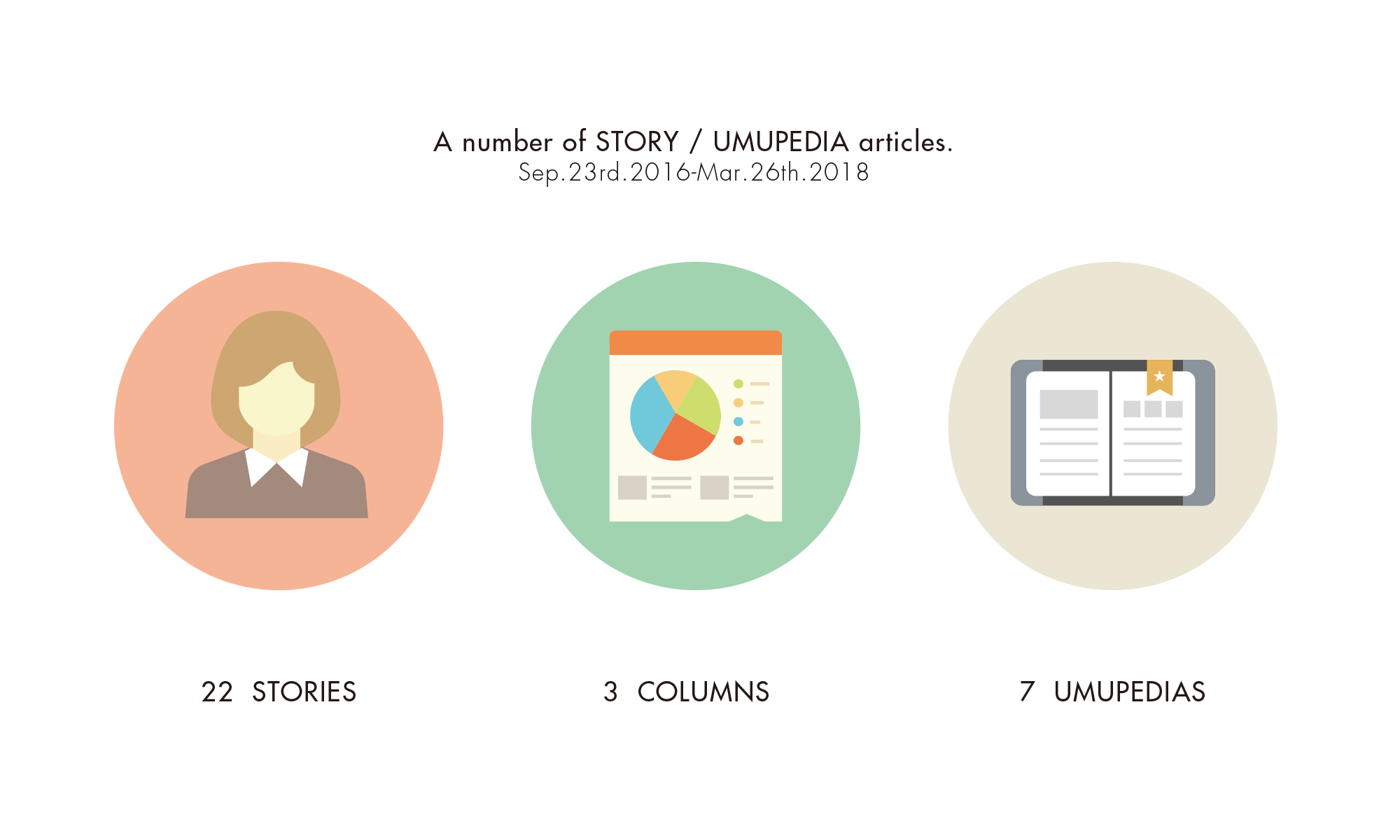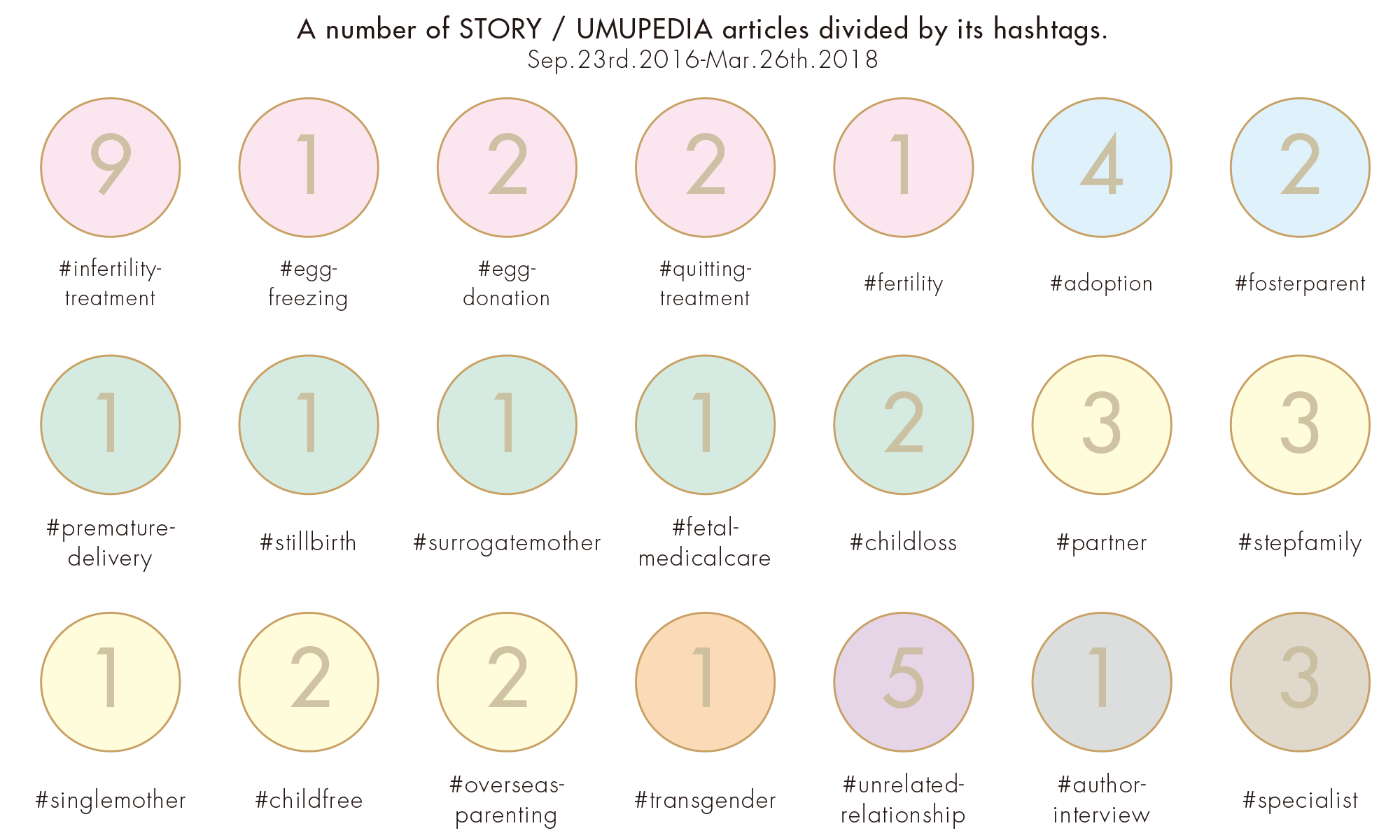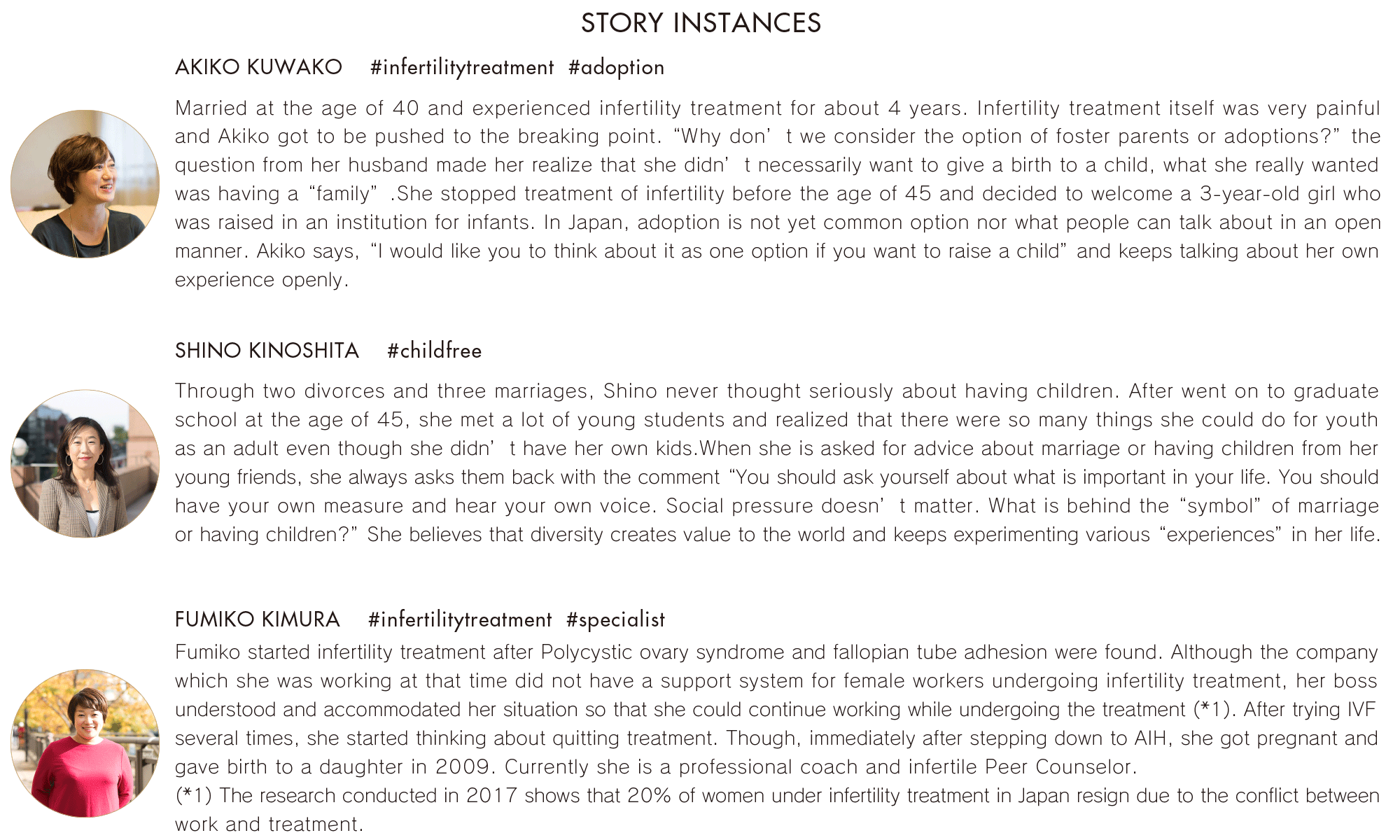UMU – to give birth – to create.
“UMU” is a storytelling media that shares real-life stories of couples and persons regarding their values and experiences about families, having children, not having children, fertility, infertility, changing genders, living as minorities, etc. , and hence enlighten people towards alternative values and new ways of living, empower people, and nurture empathy towards different lives.
“UMU” started as an informational website specializing in sharing real experiences of fertility problems to support and encourage someone who is facing infertility.
Japan has world-leading infertility medical treatment in terms of the number of medical practices. However one out of 5.5 couples in Japan is suffering from infertility. Japan has become known as something of a “superpower of fertility treatment.”
Late marriage, pregnancy, and traditional customs regarding women’s pregnancy, such as “you are considered a fully grown adult only after you give birth” and illiteracy towards pregnancy such as “you can easily get pregnant naturally anytime” are still deeply rooted.
Furthermore, blood relationship of children and parents are considered important, therefore, adoptions of biologically unrelated children are very rare. In fact approx. 39,000 kids are in care homes now; however, only about 500-600 adoptions are arranged through the child advisory services annually.
The division of society (especially seen through the women’s eyes) are “those who were able to have children” and “the unfortunate ones without children.” And perception towards fertility problem is quite closed, and people feel unsafe to talk it out casually, as though a taboo against tradition or “normality.” In the “super fertility treated society,” there is little space to share how you undergo in-vitro fertilization, how you decide to “go over the line” for adoption, or when to terminate the infertility treatment. Experiences on fertility problems and childbirth, as well as life after that, vary depending on each person, but people still believe in one single “happiness”; a happy marriage with a happy child of your own blood.
“UMU” believes that there are as many types of happiness as there are people. With the growth of medical technology, we are facing so many different ways of life. Legal and institutional aspects of medically assisted reproduction are still underdeveloped, but we see underwater, new values and attitudes towards fertility problems and alternative ways of living. We believe that a person overcoming traditional customs to win their own way of living and value of happiness creates (=umu) “power to live” through their experience.
By sharing stories told in real voices, we try to show people that any choice is the right one, and fill in the gap in society segregation: the fertile/non-fertile, man/woman, traditional gender perception/new gender perception, adopted/non-adopted, majority/minority, single/ married, blood related family/non-related family, etc.
“UMU” is generated through real stories submitted by readers. We operate the stories according to the following rules:
- In order to fully tell a person’s experience and thoughts, the stories are shown with real names, and true as possible to the person’s wordings and expressions.
- On the other hand, to avoid misunderstandings and misinterpretations, especially regarding medical related contents, we take advice from professionals in the editing procedure. Also, specific names of clinics/hospitals, and contents that could lead to residence information of the persons are omitted.
- The stories are meant purely to convey real experience and personal thoughts of featured persons, and have no intentions to advocate or recommend a certain medical treatment or discuss its efficacy. By sharing real voices of people, we aim not only to share these values with general readers, but with medical professionals to understand more about their clients’ lives.
→ For the English articles, please check here for the update.





→ For the English articles, please check here for the update.
